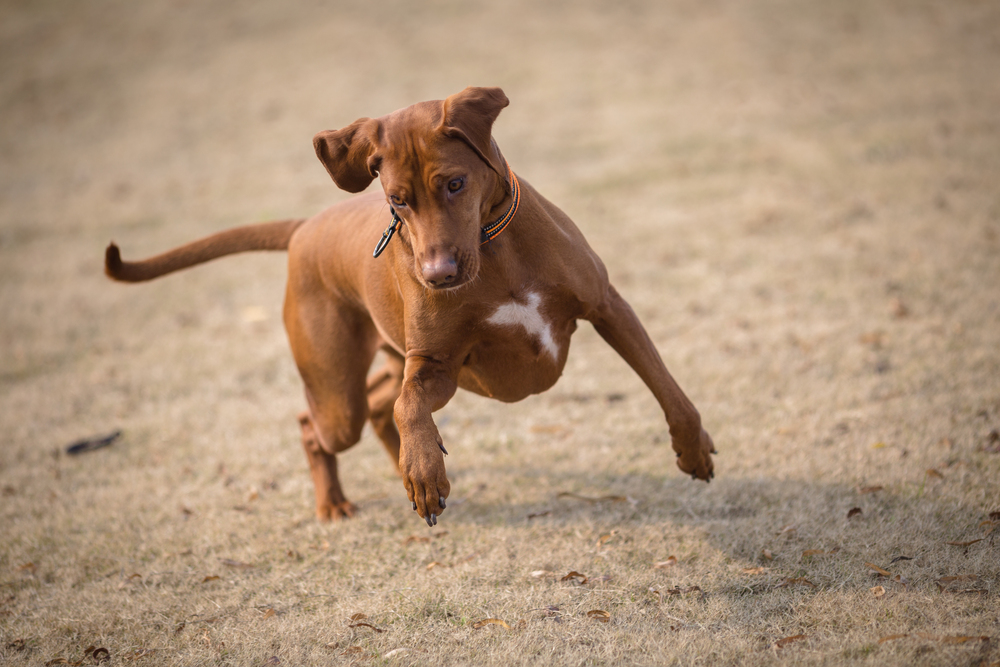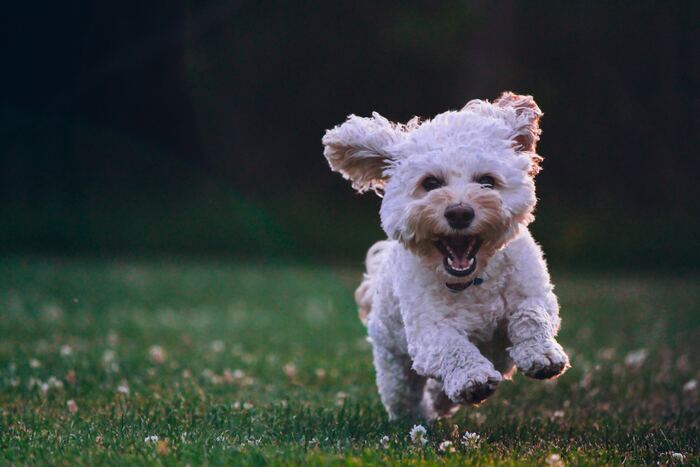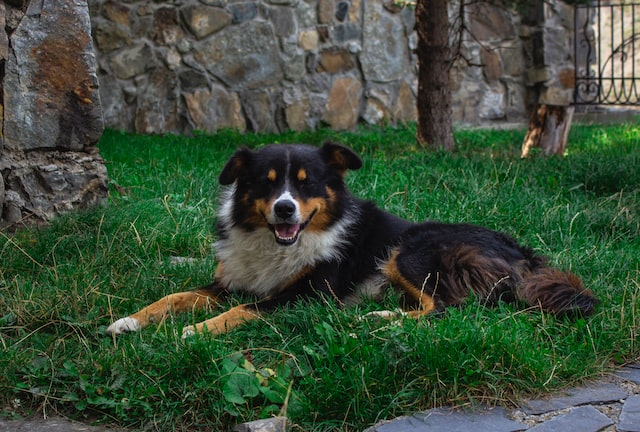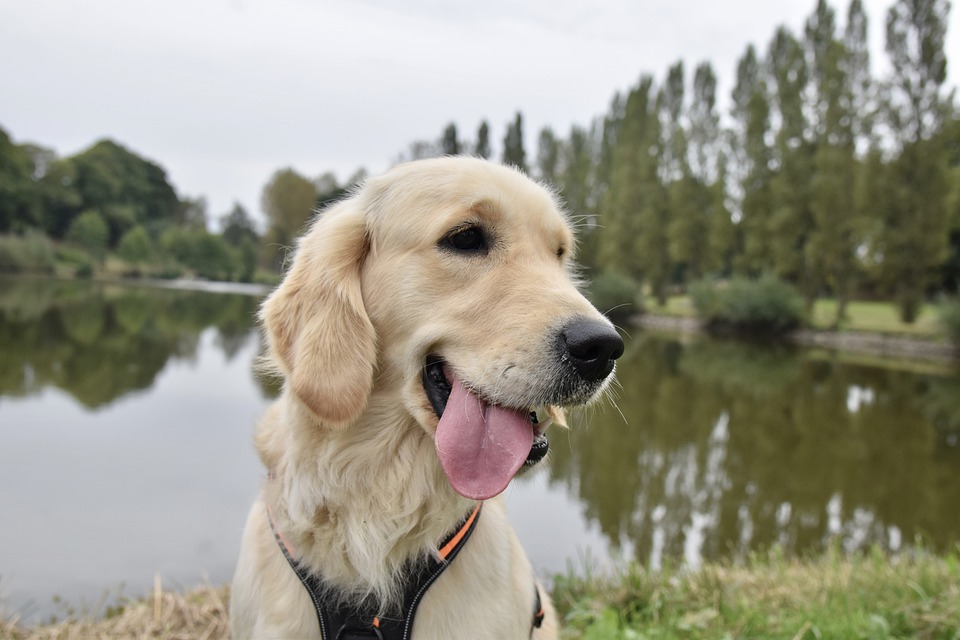
Dogs have become active members of our society, and have been joyfully welcomed by many people! Our beloved paw friends are intelligent creatures, able to recognize changes in our behavior and emotions and acquire different skills. Raising a dog is a two-way process though, which requires a lot of effort by both sides-the dog and the owner. They need to learn about each other in order to develop a bond and manage to strengthen it.
Despite trying to spend quality time with our paw family members, and knowing them as individuals, we still may wonder why they exhibit certain behaviors.
Walking in circles is a type of behavior that most of us have seen in a dog. When is this behavior normal and when we may need to seek a veterinarian's help are among the topics we will discuss today.
When is Walking in Circles a Normal Behavior in Dogs?
Non-Medical Factors
Excitement
Our beloved dogs can get easily excited, especially if they are of a breed with high energy levels. Also, puppies typically have it difficult to control their impulses and may exhibit certain behaviors that we perceive as odd or funny. Circling because of excitement due to feeding them a treat, giving them a toy, or taking them out for a walk, can be pretty normal.
Playtime
One of the ways for your doggie to let you know that they want to play is to start chasing their tail and running in circles. In this case, we can perceive this type of behavior as an invitation: “Are we going to play?”
Going Potty
You may have noticed your dog or other canines spinning around while trying to find the best spot to do their business. A possible explanation for “walking in a circle” prior to going potty is that dogs are searching for a clean area to relieve themselves. When they stomp the grass, they are likely to make the area as comfortable and spacious as possible.
Another reason may be related to the dogs’ instincts. When they choose a spot and squat, they are exposed to predators and feel vulnerable. While walking in circles, our paw friends are probably supervising the area for possible threats before they relieve themselves.
If your dog is constipated, circling may help them move the bowels to the intestinal tract.
Finding an Area to Rest
Similarly to the reason mentioned above, walking in a circle could mean for a dog they are trying to make a certain area more comfortable, i.e. if they are looking for a spot to sleep or relax.
Cooling Off
Walking in a circle while being in the garden/backyard on a hot summer day, very likely means that your paw friend is trying to cool off. Lying on cool soil will be rewarding for your dog when temperatures outside are high.
Boredom
Canines that do not receive enough physical and mental stimulation may show some unusual behaviors to keep themselves entertained. Remember that we should take care of both the physical and mental health of our paw family members if we want them to be healthy and happy.
Scent
Last, but not least! As you may know, dogs have an excellent sense of smell. The number of olfactory receptors they have exceeds that of humans by about 50 times.
Dogs use their noses as a main tool to explore their surroundings. Circling as a behavior may be tracked down to the desire of a dog to sniff at their own body, i.e. if they pass gas.
Marking Territory
When combined with sniffing and depositing small amounts of urine, circling may indicate a territorial behavior in dogs. This is a way for dogs to communicate their presence to other dogs.
Hunting Instincts
Some dogs that have a high prey drive and circling around potential prey may be a way of getting closer to it.

Health Conditions
When walking in a circle is caused by a mental or physical issue, a veterinarian examination or making changes in your dog’s living environment may be needed.
Stress and Depression
Dogs can be very sensitive to all types of changes that occur in their surroundings, including their owners’ lives. Relocating, rearranging the furniture, changing your dog’s routine, being unable to spend time with the dog...these are only a few factors that can negatively affect the emotional state and mental health of your paw friend.
If you are wondering if circling may be caused by stress, anxiety, or depression, you should closely watch your dog’s behavior. Are there additional signs such as decreased appetite, chewing, chasing their tail, or otherwise showing some unwanted behaviors…? The better you know your canine, the sooner you will be able to identify any deviations from their standard behavior that may be present.
Canine Compulsive Disorders (CCD)
Genetic predisposition, combined with the inability of a dog to find a healthy way to let off steam due to anxiety or fear may lead to unwanted behaviors such as walking in a circle. Some breeds that are more prone to developing CCD are the German Shepherd, the Border Collie, the Retrievers, the Jack Russell Terrier, the Bull Terrier, etc.
Neurological Problems
Common neurological diseases in pets are:
Degenerative disorders, Meningitis, Stroke, Canine Degenerative Myelopathy, Cancer, Epilepsy. Infections, tumors, and traumas can also cause your dog to not be able to properly perceive their surrounding and navigate it. Neurological diseases are more common in older dogs but can affect young dogs as well.
Central Vestibular Disease
Tilting their head, falling, circling, and drifting from one side to the other can be signs of a Central Vestibular Disease. This disease is usually caused by tumors, head trauma, medication such as certain antibiotics, and infections. The treatment of this condition will vary based on the cause- it can include medication such as corticosteroids, antibiotics, antifungal or antiepileptic medication, or surgical intervention.
Certain dog breeds as well as senior dogs are more prone to infections of the middle and inner ear, than other dogs. These infections can affect their balance and make the process of navigating the surroundings more difficult.
Brain Disease
There are brain illnesses that lead to inflammation of the brain tissue and can even lead to death. The presence of brain disease can cause your dog to walk in circles. The Pug, the Boxer, the Boston Terrier, the English Bulldog, the Golden Retriever, and the Doberman Pinscher are among the breeds that are genetically predisposed to brain disorders.
Cognitive Dysfunction
Cognitive dysfunction such as Dementia is common in older dogs. It can cause your paw friend to circle and lose their orientation and awareness of the surrounding. Further signs of this disease are changes in appetite, sleep, and energy levels. Incontinence can also occur.
Pain and Allergies
Skin issues such as dermatitis, lower spinal pain, and allergy to fleas can also cause your dog to walk in a circle.
What to Do if Your Dog Is Walking in Circle?
You should be able to evaluate whether this behavior has started abruptly or if your paw friend is likely to occasionally exhibit it. If your dog starts circling out of a sudden and this behavior does not seem to stop, then some health issues might be present.
It is also important that you take your canine’s overall behavior into account and any changes that may have occurred recently. If your dog has also started shaking their head, scratched their ears, or has lost appetite, you should contact a veterinarian immediately. Further symptoms of an underlying health condition are panting, disorientation, vomiting, blindness, and standing in one spot in a corner.
Being aware of your dog’s surroundings will also help you recognize any factors that may have triggered this behavior. You should be able to make adjustments if needed so that your paw friend feels safe, secure, and comfortable. Training, including basic obedience commands and desensitization to certain stimuli, can also have a positive effect on your canine’s behavior.
Never neglect your dog’s mental and physical health. Exercises, walks, games, and training will help you keep your dog in good shape. Bringing them for regular veterinarian checkups and keeping them up to date with all vaccinations is needed for our pets to remain healthy.











